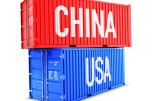Swissquote: Is faster Chinese growth good news?

Yesterday was driven by a broadly stronger US dollar, but also higher treasury yields and higher equity valuations as investor sentiment got a boost after a strongly positive surprise from the New York Empire State manufacturing index.
The US 2-year yield is now at around the 4.20%, the highest levels since the Silicon Valley Bank (SVB) collapsed, with potential of a further rise as the bank stress seems mostly abated by now.
Odds for Federal Reserve (Fed) rate cut toward the year-end fell to 25bp, from up to 100bp expected at some point at the high of the SVB crisis.
The US 10-year yield is now around 3.60%. An advance above this level has acted as a selling signal for equities in December and in February.
Time to sell?
The S&P500 is approaching the highest levels reached in February, as the market focus is shifting back to economic and corporate data.
Stronger-than-expected earnings could give a hand to equity bulls… but US yields will likely readjust to the economic reality of the field: strong employment, resilient economic activity and still-high inflation – with a threat of U-turn in the recent improvement due to rising energy prices.
Is faster Chinese growth good news?
The Chinese GDP growth accelerated from below 3% to 4.5% in Q1, versus 4% penciled in by analysts, the industrial production rose 3%, retail sales by more than 10% - which we saw in LVMH and Hermes results as well last week. Both numbers were better-than-expected, and the unemployment rate fell more than expected, as well.
Strong China data helped stopping the US oil selloff into the $80pb level, but the US equity futures didn’t really cheer up the news.
A strong Chinese growth is excellent for French luxury brands – and also for many other companies across the world, but it also means a potential boost to energy and raw material prices, that would boost inflation, get the central bankers’ hands tighter and have a reduced positive impact for equities.
And if an equity selloff is on the horizon, the negative impact will likely be harder on rate-sensitive tech stocks, including chipmakers that had a great start to the year with the AI craze.
Yet, positive exposure to mining and energy stocks is certainly a good hedge against another round of energy and raw material-boosted inflation. In this sense, there is little doubt that the British FTSE index – which is packed with energy and mining stocks – could easily outperform in the environment of energy-boosted global inflation.








